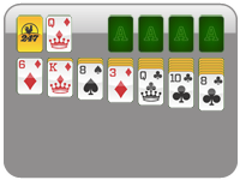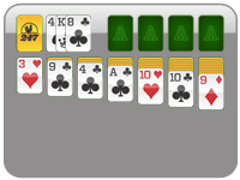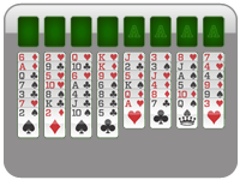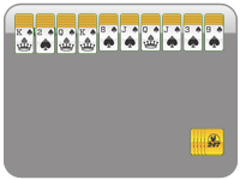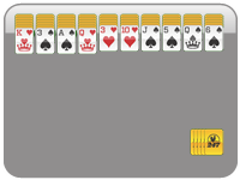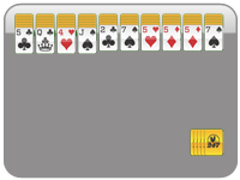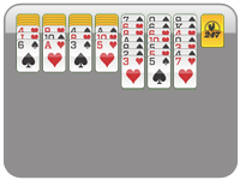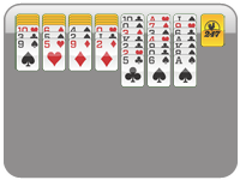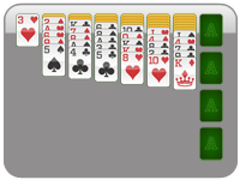How to Always Win in Solitaire: Tips & Tricks
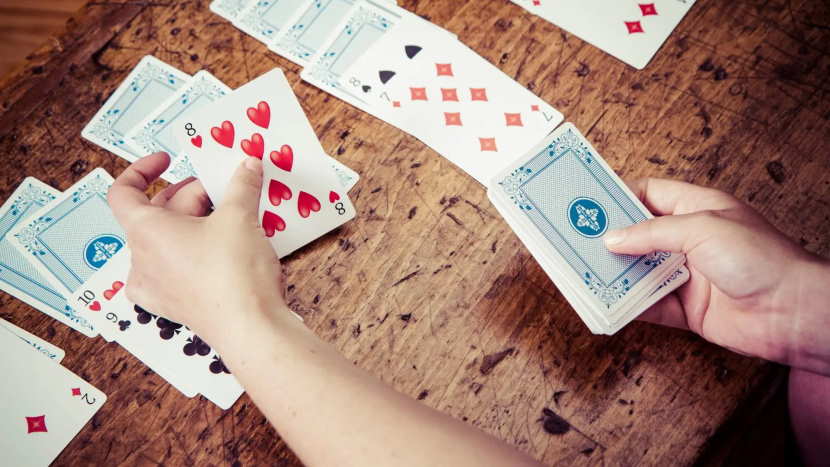
Solitaire, also known as Patience, is a game that relies on strategy and skill just as much as utilizing its namesake. If you’re looking for some insight into common beginner’s mistakes when getting into the world’s most popular online card game, you’ve come to the right place. Stay tuned to discover 10 tips, tricks, and techniques for how to always win at Solitaire!
How to always win in Solitaire: 10 Solitaire techniques to become good at the game
Deceptively simple to learn, Solitaire games have an ocean of complexity. So, how do you beat Solitaire? This can be a somewhat rare question for absolute beginners, but it's important not to let that discourage you.
At this point, you may be asking yourself how to be better at Solitaire. To level up your Solitaire gameplay, you’ll need to think and play strategically. Here are some techniques that can be applied across almost any Solitaire variation.
Move the cards on the Solitaire tableau
One of the simplest Solitaire tricks would be to deal with the cards that are already face-up in the tableau before touching the stockpile. These cards will be the key to revealing more of the hidden cards in your setup. Combine cards into larger stacks across your tableau or even start your foundations if you have any aces.
One of the more common beginner misplays in Solitaire is neglecting the hidden cards underneath your tableau, and when more cards are drawn from the stock it makes revealing them even more difficult.
Search through the options in the stock
Your stock will always be there to potentially fill any gaps in your foundations.
Normally, Solitaire is played so that the order of cards you draw from your stock never changes. This can be both helpful and restricting. A boon is that you can memorize the order of cards you will consistently have at your disposal, but three-card rules dictate that the first card drawn must be played before the ones following. If you can’t find any combination of tableau setups to play these top cards, you can end up stuck in an unproductive loop.
Fish out any aces you can immediately
As far as Solitaire tips are concerned, nothing is more important than starting your foundations as soon as possible. So, if you see an ace, play it immediately!
Practically speaking, it’s one less card you need to worry about shuffling around your tableau. With that in mind, it can be very tempting to start building up your foundational piles immediately if you find cards that can fit, but consider that these cards may still be needed to organize your tableau.
Stacking your foundations efficiently is another priority we’ll get into shortly.
Prioritize moving cards that will reveal more cards
There will be 21 hidden cards at the beginning of a standard 7-tableau Solitaire game. Almost all Solitaire techniques will focus on uncovering these cards. Neglecting them can easily get you stuck in a loop where your stock can’t build into your tableau any further.
The game will seem to be at a stalemate, so it’s important that every card is uncovered as soon as possible before attempting to deplete your stock. If you’ve created an empty space for yourself, this can be a great opportunity to reveal a couple of extra hidden cards, as any card can start the stack.
Always move cards with a strategy in mind
A useful skill in Solitaire is to make every move while thinking of its longer-term consequences.
Solitaire games can fall apart from a lack of prioritization, such as failing to reveal the hidden tableau cards and instead filling it with piles of cards from the tableau.
Some ways to combat this obstacle are to think about the long-term implications of every card you place, or how you arrange your builds. Are you creating a tableau board which is difficult to play around? What will happen to the hidden cards under your build? All of these possibilities can make a single move a consequential action.
Build Solitaire foundations as evenly as you can
Your foundations may be the objective of the game, but it’s important to make sure that your plays aren’t focusing on building them up to the detriment of other aspects of the game. Remember that tableau can only be built in a numerical sequence of red-to-black.
Your game time will likely be spent organizing and reorganizing your tableaus up until the final rounds of the game. Missing a significant percentage of your black or red cards in your foundations might feel satisfying in the moment, but those missing cards may make your tableau that much more difficult to arrange. It's for that reason when you’re building your foundations, focus on constructing them evenly across all four piles rather than being biased towards only one.
Don’t put some cards in foundations too early
Recall that your tableaus hold the key to successfully building your foundations, but they need to be prioritized as an organized system. Sometimes there are opportunities to place a card directly from the stockpile into your foundations if your aces have already been set up. This might feel like a lucky draw, but before you hastily throw that card into foundations consider the state of your tableaus. If you’re unable to create a free empty column because you’re missing a single card, don’t play that card away where you could have used it advantageously.
Only create an empty column when you have a king
Empty columns can only be turned into a new tableau with a king. Emptying that space without a king in your deck can just turn into a nuisance, so plan your moves accordingly to take advantage of an empty column swiftly and efficiently. These spaces can be used as a free cell, or as storage for holding cards to facilitate complicated builds on your tableau.
The reason for creating an empty column with a king in your pocket is that kings— being at the very top of the deck—can be incredibly hard to slot into pre-existing builds. You’d either have to re-place each card individually or find another tableau space where the entire column can easily fit. This is very difficult, so it’s better to play kings sooner rather than later.
Use the undo button when you make a mistake
Solitaire can be a difficult game to master, but playing Solitaire online offers unique tools to help us understand and learn from our mistakes. Simply being able to undo a turn or even multiple turns can quickly transform a frustrating experience into a unique puzzle to solve.
Keep playing—practice makes perfect
Finally, some games of Solitaire are simply not meant to be. Don’t let a couple of unlucky games put you off—practicing your favorite games is like practicing any other skill. Enjoy the education and lessons from the games that don’t go so well, as at the end of the day, it's just a game!
With so many Solitaire versions out there, it’s easy to give a simpler variation a try. There are many forgiving variations of the most popular rulesets, such as one-card draw Solitaire. Playing these games can help build your foundational knowledge of the game and make jumping into the classic game less confusing.
Check out other ways to play Solitaire
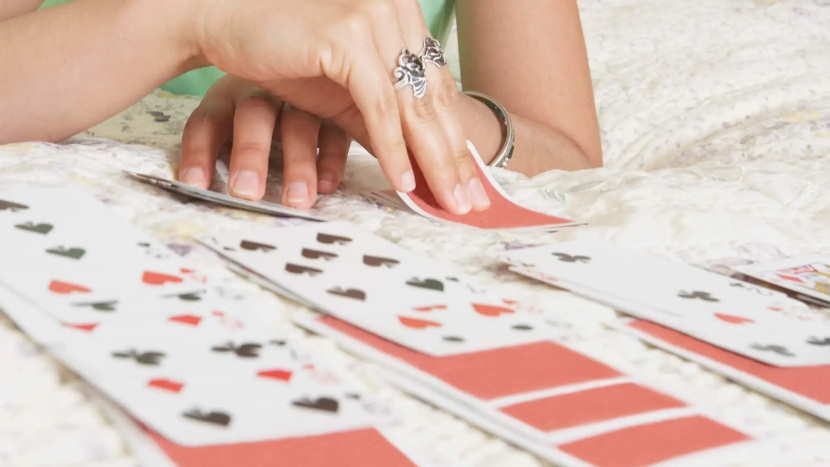
Start putting these Solitaire tips, tricks and techniques to the test
There you have it! Hopefully, with these strategies, you have learned how to play Solitaire more efficiently. This should help you go longer into the game and, get more rewarding, and more often fully completed games. If you’re looking to put these new skills into action, consider heading over to 247 Solitaire and playing one of the many available Solitaire variations!
Find out the fastest Solitaire game recorded and learn to increase your speed in playing.
Solitaire Games
More Solitaire Games
More Games
Solitaire News
Disclaimer
DISCLAIMER: The games on this website are using PLAY (fake) money. No payouts will be awarded, there are no "winnings", as all games represented by 247 Games LLC are free to play. Play strictly for fun.

